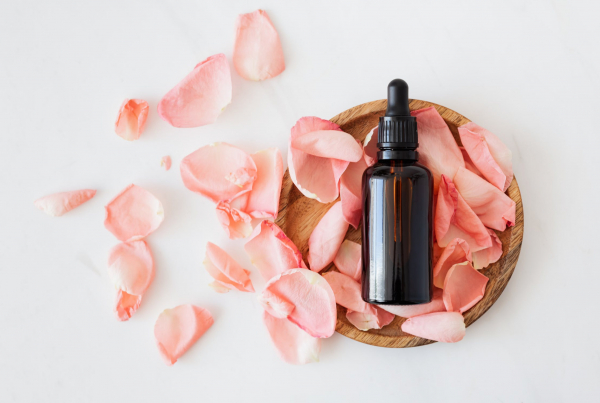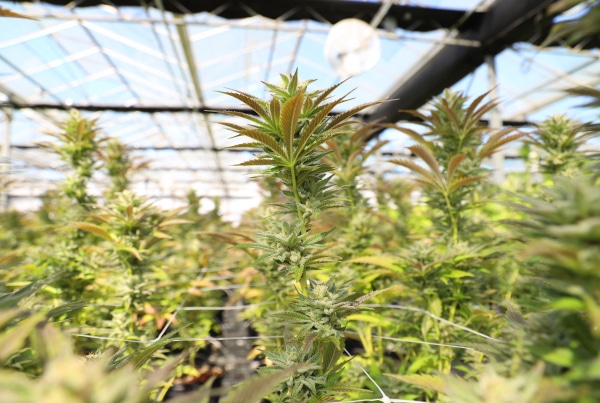
It’s no secret that CBD can help reduce inflammation and treat chronic pain for a variety of conditions, from epilepsy to gastrointestinal disease to eczema. What you may not realize is that CBD can be hugely beneficial to the elderly as well, providing a host of health benefits in addition to treating chronic conditions, all without any ‘high’.
Of course, you want the best for your loved ones, and you want to know the science behind any new additions to their medicinal regimen. Here, we’ll discuss the potential benefits of giving CBD to your grandparents or elderly family and friends, how to go about choosing a CBD product (or combination of products) that suits their needs, and how to assist with finding the right dosage strength.
CBD is a low-risk, potentially highly beneficial way to treat a variety of the complications associated with old age. Whether your loved one is suffering from glaucoma, heart disease, dementia, or arthritis, there is an appropriate CBD regimen available that can help them live a healthier, happier life in their golden years. In fact, CBD has helped thousands of seniors eliminate pharmaceutical medication altogether.
Key Takeaways
- CBD is a low-risk, potentially highly beneficial way to treat a variety of the complications associated with old age
- Whether your loved one is suffering from glaucoma, heart disease, dementia, or arthritis, there is an appropriate CBD regimen available that can help them live a healthier, happier life
- CBD has helped thousands of senior eliminate pharmaceutical medication altogether
How Can CBD Benefit The Elderly?
CBD is a powerful anti-inflammatory and pain reliever, making it ideal for many seniors suffering from inflammatory diseases such as arthritis (including rheumatoid arthritis), Alzheimer’s, type II diabetes, cardiovascular disease, and others. CBD can be used to treat “flare-ups” of symptoms, but it’s most effective when it’s used regularly; it reduces inflammation over time, thereby alleviating the pain associated with the inflammation as well as other symptoms like muscle spasms and neuropathy.
CBD can be a powerful alternative to NSAID pain relievers, whose prolonged use may cause liver damage and can even be toxic in high doses. CBD works on your body’s natural endocannabinoid system, producing little to no unwanted side effects while reducing and even replacing current medications. How can CBD be beneficial in treating illnesses common to seniors? Let’s explore some common conditions and examine the science behind CBD’s effectiveness with each.
CBD for Glaucoma
CBD acts in a manner similar to THC (which has also been studied and shown to be beneficial, but is a harder sell for many senior citizens, who still have deeply entrenched negative associations with cannabis use) to decrease intraocular pressure, or IoP. High IoP is an underlying cause of glaucoma, a neurodegenerative disease that causes deterioration of the neurons within the eye, and thus damages their communication with the brain.
Cannabinoids have been shown to decrease IoP by as much as 25 percent, which can provide your neurons much-needed relief and slow the degenerative process. CBD can also treat ocular pain experienced by some glaucoma sufferers, making it an ideal treatment option for patients seeking both long-term treatment of the underlying cause and immediate symptom relief.
CBD for Slowing Alzheimer’s and Dementia
CBD can do more than just curb the inflammation of the neural tissue characteristic of dementia. It can also serve as a neuroprotectant, shielding neurons from damage and even helping eliminate toxic proteins that cause the damage associated with Alzheimer’s disease in particular.
CBD’s combined anti-inflammatory and neuroprotective properties may help slow the advance of dementia and Alzheimer’s disease. If your loved one is suffering from dementia or Alzheimer’s, CBD can help slow the advancement of the illness as well as treat the anxiety often felt by dementia sufferers, especially in the later stages of the disease. While more research is needed in this arena, the risks are so low that CBD may be worth a try: Worst case, it has no effect, but in the best case it could help your loved one lead a better quality of life in their remaining days.
CBD for Alleviating Arthritis
Bone and joint pain is a common complaint among seniors, as is arthritis and its equally debilitating cousin, rheumatoid arthritis. CBD can alleviate symptoms at the source by treating underlying inflammation, reducing the effect of the disease and relieving the pain it causes. It’s also a potent analgesic and alters pain perception as well as attacking the cause.
CBD can be taken orally as a systemic treatment for arthritis, but it can also be applied topicallyfor localized relief. Use a CBD salve or cream to rub into joints and muscles, working both from within and from without to target and relieve inflammation and pain.
CBD for Cardiovascular Disease
CBD can help treat the inflammation found in the blood vessels of those suffering from cardiovascular disease and high blood pressure, potentially reducing the risk of heart attack and stroke over time as well as decreasing blood pressure. CBD can also reduce inflammation in the lungs and may have beneficial effects on the cardiopulmonary system. It may also reduce inflammation in the brain following a stroke and may be helpful in recovery and rehabilitation.
Choosing the Right CBD Regimen for Seniors
With all the CBD products available on the market, it’s easy to get lost in the jumble. Check out our CBD Buyer’s Guide for details, but the key takeaway is to look for short ingredient lists, limited to a carrier oil and CBD or hemp extract, when seeking out tinctures and softgels.
So, what type of CBD is best for your loved one? We recommend CBD softgels because they are an easy and long-acting method that allows you to customize your dose with ease and makes dosing simple and straightforward. The orally ingested CBD takes a little longer to take effect (about 45 minutes), but it can last up to eight hours.
For fast-acting relief, vaporizing CBD can be an option for some seniors. While it isn’t for everyone, vaping takes effect very quickly and lasts several hours, making it a good way to treat sudden flare-ups of symptoms.
Topical salves can provide localized relief from pain and inflammation, targeting exactly what hurts. Topicals can also alleviate feelings of anxiety resulting from the disorientation caused by dementia: Simply rub it on their skin in a soothing manner and help bring them back to calm—applying to the temples of forehead is very effective.
Finding the Right CBD Dose for Seniors
When it comes to finding the right dose, CBD is like any other medication: It may take some time and experimentation to find the dosage that works for your loved one. The good news is, you won’t cause them to overdose no matter how much you give them, and you won’t cause any adverse health consequences. We’re not saying to start with a full bottle of tincture, but just know that there’s plenty of room for error with no dire consequences.
We recommend starting with a single softgel or approximately 15 mg of CBD through a tincture, increasing the dose if no effects are felt after the first hour. You can always increase the dose if necessary, but you can’t scale it back once you’ve administered it.
Continue to increase the dose of CBD until relief is achieved. Once you find a dose of a systemic CBD product that works for your loved one, we recommend supplementing it with topical products as needed in order to provide maximum symptom relief.
CBD And Alzheimer’s
The number of people living with Alzheimers is growing rapidly—in fact, every 65 seconds someone in the U.S. develops Alzheimer’s disease (AD). Many are familiar with the symptoms of this disease, which include memory loss and confusion. However, the limited effectiveness of current therapies against AD has spurred further research into developing new agents for preventing and slowing the disease process. Below, we analyze the latest research to see if CBD provides a viable alternative to traditional treatments for AD and dementia. These studies evaluated CBD’s medical efficacy in treating those who suffer from AD and dementia.
Studies on CBD for Alzheimers
A 2004 study highlighted the neuroprotective effects of CBD as they relate to AD. “Alzheimer’s disease is widely held to be associated with oxidative stress due, in part, to the membrane action of beta-amyloid peptide aggregates…Our results indicate that cannabidiol exerts a combination of neuroprotective, anti-oxidative and anti-apoptotic effects against beta-amyloid peptide toxicity…” In other words, CBD helps prevent the onset of AD by limiting the effects of beta-amyloid peptide toxicity, the major cause of the disease.
Learn more: https://www.ncbi.nlm.nih.gov/pubmed/15030397
A 2012 study evaluated the therapeutic potential of the endocannabinoid system for Alzheimer’s disease. “Based on the complex pathology of AD, a preventative, multimodal drug approach targeting a combination of pathological AD symptoms appears ideal. Importantly, cannabinoids show anti-inflammatory, neuroprotective and antioxidant properties and have immunosuppressive effects. Thus, the cannabinoid system should be a prime target for AD therapy…Furthermore, the phytocannabinoid cannabidiol is of particular interest as it lacks the psychoactive and cognition-impairing properties of other cannabinoids.”
Learn more: https://www.ncbi.nlm.nih.gov/pubmed/22448595
A 2014 study found that long-term CBD treatment prevents the development of social recognition memory deficits in Alzheimer’s disease transgenic mice. “Control and AD transgenic mice were treated orally from two-and-a-half months of age with CBD (20 mg/kg) daily for eight months…This study is the first to demonstrate CBD’s ability to prevent the development of a social recognition deficit in AD transgenic mice. Our findings provide the first evidence that CBD may have potential as a preventative treatment for AD with a particular relevance for symptoms of social withdrawal and facial recognition.”
Learn more: https://www.ncbi.nlm.nih.gov/pubmed/25024347
A 2017 study looked at the evidence for therapeutic properties of CBD for Alzheimer’s Disease. The studies demonstrate “the ability of CBD to reduce reactive gliosis and the neuroinflammatory response as well as to promote neurogenesis. Importantly, CBD also reverses and prevents the development of cognitive deficits in AD rodent models. Interestingly, combination therapies of CBD and THC, the main active ingredient of cannabis sativa, show that CBD can antagonize the psychoactive effects associated with THC and possibly mediate greater therapeutic benefits than either phytocannabinoid alone. The studies provide ‘proof of principle’ that CBD and possibly CBD-THC combinations are valid candidates for novel AD therapies. Further investigations should address the long-term potential of CBD and evaluate mechanisms involved in the therapeutic effects described.”
Learn more: https://www.ncbi.nlm.nih.gov/pmc/articles/PMC5289988/
Another 2017 study evaluated CBD’s effect on the expression of Alzheimer’s Disease-related genes in stem cells. “CBD pre-treatment in GMSCs [mesenchymal stem cells derived from gingival] modulated the transcriptional profile of these cells by attenuating the expression of genes implicated in the etiopathogenesis of AD. In conclusion, this preliminary in vitro study has demonstrated that GMSCs preconditioned with CBD have better therapeutic potential compared to CTR-GMSCs cells, and we believe that their transplantation in the early stage of AD may play a role in preventing or attenuating the disease onset.”
Learn more: https://www.ncbi.nlm.nih.gov/pmc/articles/PMC5297661/
A 2018 study demonstrates for the first time that “cannabidiol (CBD) acts to protect synaptic plasticity in an in vitro model of Alzheimer’s disease…Our data suggests that this major component of Cannabis sativa, which lacks psychoactivity may have therapeutic potential for the treatment of AD.”
Learn more: https://www.ncbi.nlm.nih.gov/pubmed/29574668
As indicated by the studies above, CBD has neuroprotective properties that are effective in preventing and treating AD and dementia.
Recommended CBD Regimen for Alzheimer’s Disease
When formulating a CBD regimen for a specific disease or illness like Alzheimer’s disease, it’s important to understand that CBD should be used regularly for maximum relief. Meaning it should be used as a preventative first—it can also be used to manage acute symptom flare ups, but the preventative maintenance is most important! Think about it like any other dietary supplement or medication, you want to establish a baseline concentration in your system.
Daily Maintenance
In order to manage the symptoms associated with AD and dementia, we recommend ingesting full-spectrum CBD oil daily in the form of tinctures or gel capsules. The ingredients in the two products are the same; the only difference between them is the form factor and dosage—pills vs. sublingual tinctures. We suggest those suffering from Alzheimer’s disease start with 15 mg of CBD per day. If relief is not felt at this dosage, we suggest increasing by five or 10 mg until the desired effects are achieved. You’ll notice that gel capsules are pre-filled and contain either 15 mg or 25 mg of CBD per pill. There is no harm in starting above the 15 mg CBD threshold as you cannot overdose on CBD, nor are there any serious side effects. These ingestible products provide sustained symptom relief for several hours—many people find they provide relief for the whole day! The one thing to keep in mind with ingestible CBD products is the delayed onset time—it can take up to 90 minutes for the full effects of the tinctures or capsules to be felt.
Managing Acute Symptom Flare Ups
In addition to the daily Alzheimer’s disease management program outlined above, many people find they still need a safe way to manage acute flare ups. Regardless of the triggers, we recommend vaporizing CBD to combat these acute AD and dementia flare ups. The benefit of vaporizing or dabbing CBD is that the relief can be felt almost instantaneously. We suggest either the 99-percent pure CBD isolate or the pre-filled CBD vaporizer cartridges because they provide a wave of relief that can be felt throughout the whole body.
You can also ingest more CBD in the form of tinctures or gel capsules to combat these episodes; just keep in mind that the onset time will be significantly longer than vaporizing.
Anti-Aging Benefits Of CBD
Aging, and particularly visible aging, is a complex topic in American culture. While some people embrace their laugh lines and gray hairs, industries are devoted to our desire to stay young in appearance. A relative newcomer to the beauty and skincare spheres, CBD may help to combat signs of aging. There are many anti-aging benefits of CBD waiting to be reaped in effective skin care routines.
As we grow older, our trips around the sun start to show up more and more in our skin. Preventing the appearance of wrinkles, fine lines, dark spots, and drooping can be daunting—and, in most cases, it’s impossible. Visible signs of aging are an inevitable part of life, but that won’t stop many of us from trying to delay them as long as we can.
While medical procedures like chemical peels, fillers, injections, and even surgery are used to reduce visible aging, these methods are invasive and expensive. As a result, many people are looking for new, healthy, natural ways to reduce the rate of visible aging without going under the knife (or needle).
While it’s usually thought of as a therapeutic ingredient, CBD appears to be a powerful tool to combat aging. The hemp-derived compound has many benefits for physical health, and these benefits may also apply to the skin. Even though it is best known for its analgesic, anti-inflammatory, and neuroprotectant properties, cannabidiol also plays a significant role in preventing aging.
Here, we’ll break down the anti-aging benefits of CBD for skin and overall health, discussing the science behind each and offering some guidance on how to get the most from your dose.
Aging comes with many variables that are out of our control. However, that doesn’t mean that the aging process is totally out of our hands. The anti-aging benefits of CBD can be used to slow aging, improve quality of life, and support overall wellness. CBD delivers all of these anti-aging benefits with no severe side effects and zero risk of dependence or addiction.
CBD Improves Sleep
Sleep is a significant factor when it comes to aging, and years of poor sleep add up on your face. Sleep deprivation can actually accelerate aging over long periods. Research suggests that individuals suffering from sleep disorders often appear older than those with better sleep habits.
This effect is likely due to the stress sleep deprivation causes to your cells and tissues, especially chronic lack of quality sleep. Studies indicate that lacking enough sleep can result in the degeneration of cells, accelerating the signs of aging and increasing the risk of illness—yikes!
CBD helps improve sleep by encouraging relaxation, making it easier to fall asleep by reducing the heart rate and slowing racing thoughts. It also helps to keep your body in REM sleep, the phase of sleep during which you dream. REM sleep is crucial to waking up feeling rested and rejuvenated. That revitalizing feeling carries over to your skin as well, preventing damage and accelerating healing.
CBD Induces Relaxation
Cannabidiol promotes relaxation, inducing a calm sensation of wellbeing and ease. It does this in three primary ways: First, CBD acts as an anxiolytic. It promotes a general sense of relaxation and soothes frazzled nerves, reducing the stress response by the mind and body.
CBD has been found to reduce the body’s stress and inflammatory responses as well, which often show up in our skin in the form of breakouts, dryness, and hyperpigmentation. Topical CBD can help to address these issues directly in the skin, improving texture, tone, and brightness when used over time.
Finally, CBD induces relaxation of muscles when applied to the skin. This action can help to prevent wrinkles when used over time, especially when applied to the face. And, while we’re on the subject of wrinkles in particular…
CBD Reduces Wrinkles
The most visible signs of aging appear on the skin in the form of wrinkles and fine lines. Starting as tiny crinkles in the skin, wrinkles gradually progress in depth and length over time. They exacerbate the loss of firmness and skin elasticity, making us look drastically older.
CBD helps by increasing the production of collagen in the body. To do so, it reduces the rate at which collagen in the body is broken down. Since collagen is responsible for our skin’s elasticity, increasing collagen levels in the skin can lend a more youthful appearance.
Additionally, full-spectrum and broad-spectrum CBD contain essential nutrients that promote continuous cell regeneration, which improves your skin’s overall health and appearance. At the same time, it hydrates and adequately moisturizes the skin for a glowing, lit-from-within appearance.
CBD Promotes Bone Health
Bone health becomes an increasingly important issue as we advance in age. The body starts to synthesize bone minerals such as calcium differently, changing bone composition. This can lead to bone degeneration and other medical conditions, such as osteoporosis and arthritis.
CBD contains essential nutrients that help replace those lost to our changing metabolism. These include calcium and magnesium, as well as vitamin E, which helps make those nutrients bioavailable. CBD can help to alleviate the symptoms of osteoporosis and arthritis such as chronic pain and inflammation.
CBD Relieves Inflammation
CBD aids in replenishing essential minerals in the body. It contains high levels of minerals such as calcium that improve healing and promote cellular regeneration. With additional nutrient content, full-spectrum CBD promotes healing and recovery of the body from inflammation and injuries.
Cannabidiol is an essential pain reliever due to its advanced interactions with the endocannabinoid system. The interactions help regulate different body systems and functionalities. As a result, they aid in reducing pain and provide relief from inflammation.
CBD Acts as an Antibiotic
The skin and body, in general, are continuously exposed to radical elements that can cause injury or infection. These include dust, extreme temperatures, rain, abrasion, laceration, and bacteria, among others. All these threats have different potential impacts on skin and personal health, but CBD may help to neutralize them.
Cannabidiol contains antibacterial properties that aid in eliminating many types of bacteria from the skin’s surface. It cleanses and moisturizes, leaving skin protected from would-be invaders. CBD may help to relieve eczema, and studies indicate that it prevents overproduction of sebum. This action may also make it effective against many types of acne.
A Quick Note About CBD & Drug Testing
Much of the data we have about CBD is anecdotal, and its potential impact on drug testing is no exception. There are very few peer-reviewed studies on the subject, and the ones available paint a rather murky picture: avoiding full-spectrum products containing traces of THC can reduce the risk of a false positive, but that may not eliminate that risk entirely.
If you are concerned about your loved one’s ability to pass a drug test, you’ll need to consider this potential risk when deciding whether CBD is right for them. To learn more about the science of CBD and drug testing, check out this article for a more thorough discussion of how to minimize the risk of a false positive.











